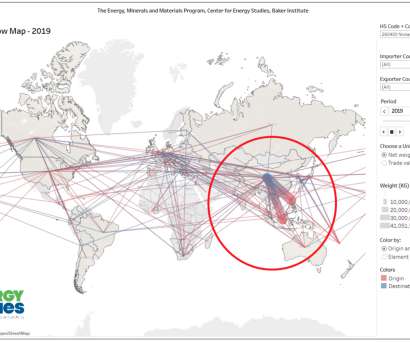Baker Institute report: China has positioned itself as a gatekeeper to the energy transition; nickel case study
Green Car Congress
APRIL 21, 2022
How Electrifying Transport and Chinese Investment are Playing Out in Indonesia —focuses on nickel as a critical mineral, but has implications for the broader minerals and materials supply chains needed for broad-scale energy transition. The detailed report— Need Nickel?












Let's personalize your content